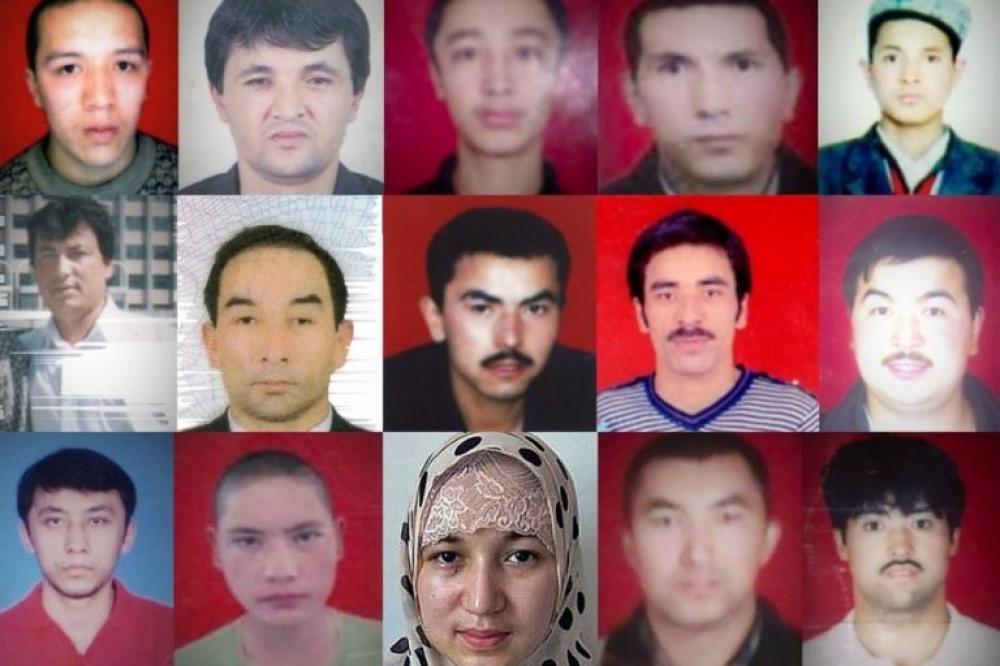Just Earth News | @justearthnews | 30 Aug 2017, 03:39 pm Print

Patigul is an ethnic Uyghur residing in China, her story sadly is not a solitary case.
Enforced disappearances is a reality in China that seldom gets to see the light of the day. The matter is made worse by Beijing's denial.
Uyghurs are by far one of the most bullied community in China, facing atrocities at almost every level.
Earlier this year, many Uyghur religious students were deported from Egypt at China's request.
The move forced many students of the said community to take cover, as a result many went untraced.
Uyghur students were quoted as saying that a deportation was 'no less than hell' as they feared that they would be 'treated like animals'.
According to World Uyghur Congress, the international umbrella organisation promoting Uyghur rights, it hasn't heard from the deported students since.
Hundreds of #Uyghurs have been victims of Enforced Disappearances by the Chinese government, hear about it here #DayoftheDisappeared pic.twitter.com/jlKYCLeqvx
— WorldUyghurCongress (@UyghurCongress) August 30, 2017
The organisation says that a similar thing had taken place once in 2009, where 43 students were deported, the whereabouts of whom is still unknown.
"More than 43 Uyghurs were forcibly disappeared in aftermath of July 2009 unrest. 8 years later, their fate and location is still unknown," a statement from the organisation reads.
According to UN Human Rights expert Houria Es-Slami, "Relatives have a right, as victims themselves, to know the truth about the circumstances of the enforced disappearance, the whereabouts of their loved ones, the progress and results of the investigation, and ultimately the fate of the disappeared person.”
The UN has urged all member states to ratify the International Convention for the Protection of All Persons from Enforced Disappearance.
China however has maintained its silence, while continuing to be aggressive towards the Uyghurs .
The recent announcement by the Cambridge University Press that it had removed some 300 articles from a Chinese website hosting the China Quarterly, premier academic journals on Chinese affairs, is a prime example of China's muscle flexing strategy to manipulate history.
The University made the decision to block access to these articles after China’s General Administration of Press and Publication threatened to cut access in China to all of the journals published by Cambridge University Press, The Washington Post reported.
"The offending articles in question appeared in the China Quarterly as far back as 1960 and concerned a range of topics considered sensitive in today’s China. There were pieces on the disastrous famine sparked by the Great Leap Forward, the Cultural Revolution, the Tiananmen Square crackdown of 1989, the suppression of the Falun Gong religious sect and the troubled legacy of Mao Zedong," the report reads.
Beijing has been very keen on tackling down any opposition, be it from their own people from from foreign lands.
Earlier in the year, Liu Xiaobo, a prominent critic and Noble Prize recipient, was 'buried at sea' following his death.
Chinese officials had branded him a traitor and jailed him for 11 years for expressing dissent against the Communist Party.
Liu, who died of cancer, was not even allowed to travel abroad for treatment and the almost zilch about his death was written in Chinese state-run media, who are otherwise very prolific at pointing out anything 'unpatriotic'.
Meanwhile, the plight of the Uyghur community increased by few folds following an announcement by the Turkish government that it will censor all anti-China reports from its media.
The move has angered Uyghur activists, who fear that the miserable tales of their community will never surface and enlighten a wider audience.
"We take China's security as our security. We absolutely will not allow in Turkey any activities targeting or opposing China. Additionally, we will take measures to eliminate any media reports targeting China," Turkey's Foreign Minister Mevlut Cavusoglu said after meeting his Chinese counterpart Wang Yi earlier this month.
Ban of Islamic names, ban of the length of beard, ban on burqa are some of these reforms that the Uyghurs are forced to follow in Xinjiang province of China, locally known as East Turkestan.
Speaking about the plight of the community, an activist told The Verge, "It could be a big problem for the Uyghur community inside Turkey.”
Another activist who did not wish to be identified was quoted as saying, "There are few countries in the world where protests about the plight of people inside East Turkistan makes the front page."
The activist also doubted the legitimacy of reports churned out by Chinese media.
"We can’t rely on Chinese press to tell us what is really happening to the Uighurs,” the activist said.
Image: @UyghurCongress/Twitter
- Viral Irish food bank photo sparks shocking racist attacks on Indians
- Caught on camera: Two foreigners assaulted in Israel in an alleged racial attack
- Pakistan: Parents heartbroken after court sides with man accused of kidnapping minor Christian girl
- Pakistan: Trafficked 35 years ago, Bangladesh-born woman approaches court against FIA for offloading her from flight!
- Hindu tea worker found bound and bloodied in Bangladesh garden during general elections; investigation underway





-1763561110.jpg)
